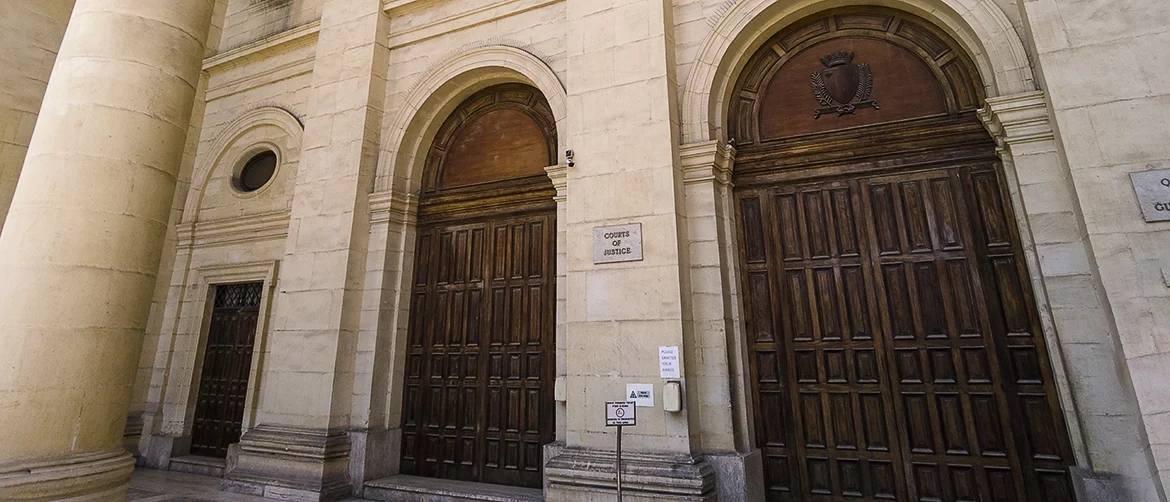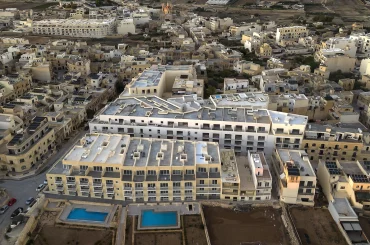There is something approaching consensus in legal circles that the law on magisterial inquiries triggered by citizens or other juridical entities (such as NGOs) is flawed because those liable for investigation are given upfront information and asked for their opinion or response before a magistrate can even order an investigation. Moreover, the material evidence has to be identified and to exist prior to investigation, something that could further narrow the scope of ordering investigations.
The legal scholar Kevin Aquilina once told me that these provisions or weaknesses make the law something of a “travesty of justice”.
Yet prime minister Robert Abela did not mention these inherent flaws when he came out guns blazing on Facebook thirteen days ago in reaction to an application by Jason Azzopardi for a magisterial inquiry into an alleged racket involving allocation of moorings in Gozo. Abela asserted that he would reform the law to put curb what he characterised as an “abuse” of the law or judiciary by those he called as ‘extremists’, people and entities (the NGO Reppublika, for example), calling for inquiries into alleged political corruption.

Jason Azzopardi has this week made a new request for a magisterial inquiry, this time over a road project by the Ministry of Gozo.
So, when Abela talks about reforms of the law, what could Abela do really? Weaken further a law already weak? Or eliminate a law so weak that it has only yielded results in recent years in cases that left behind a substantial paper trail?
The weakness of the law
Chief Justice Emeritus Vincent De Gaetano once wrote about the law’s primary flaw by saying that “Malta must be the only country in the civilized world” in which the magistrate receiving the report “must” in the first instance “inform the suspect of the report, information or complaint against him and allow him time to give his views on whether an inquiry is to be held. This is beyond bizarre.”
This is built into the procedure, which starts by having a citizen or entity, say Repubblika, putting in a court application requesting a magisterial inquiry. The application has to describe the alleged crime and material evidence that exists, and identify the specific offences in criminal law and name the suspects (or alleged perpetrators, referred to as ‘the suspects’ in law). The duty magistrate would then notify the suspects for their response to the application and request, and, once they respond, take a decision on whether to hold an inquiry or not. The magistrate’s decree can then be appealed in front of a higher court by any of the parties.
This means that before the investigation can commence, the suspects would gain visibility over the application and all its details, get an opportunity to oppose an investigation and, if the magistrate orders an investigation, a further opportunity to appeal. This process can take weeks – there were cases when it took months – which gives plenty of time to those suspects who have something to hide to destroy evidence and rehearse what to say in any eventual inquiry.
It does not take much logic to understand why this is daft: an element of surprise as well as moving fast to secure any evidence that exists can be crucial in any investigation.
Law of 2006 a fudge
The provisions empowering private citizens and juridical entities to request magisterial inquiries were put into the law in August of 2006. The point of these inquiries, which can only be held in the event of a suspected criminal offence liable to at least 3 years in prison, is to gather material evidence, including depositions, for any eventual prosecution.
The legal provisions of 2006 were piloted by the then Justice Minister Tonio Borg. Until then, the law only empowered the police or Attorney General to make reports to the duty magistrate that could then trigger inquiries. And in extending that possibility to everyone else, Borg was concerned that this power could be abused to target enemies, or that people could abusively find themselves under investigation by a magistrate without their knowledge. Borg was mostly concerned about the potential for magistrates to launch investigations abusively or recklessly.
So he came up with the idea of a double test: the Chief Justice would have to review and assent to the magistrate’s decision to investigate before an investigation could commence.
The then Labour opposition opposed this measure because it signified lack of trust in the magistrature. The opposition also argued at Committee stage in parliament that it would give the Chief Justice the power of veto, who could potentially veto investigations abusively.
Borg explained in parliament that his intention was to make decisions less liable to error or abuse by having two members of the judiciary to scrutinise reports, and that he was open to finding a “middle way.” That’s when talk of allowing the suspect to respond to the initial application and then the chance to appeal emerged, which became enshrined into law.
One effect of this has become evident in recent years, as some inquiries become caught in lengthy appeals. In 2017, for example, a request for an inquiry by then opposition leader Simon Busuttil stemming from the Panama Papers became caught up in appeals for a year before being dismissed.
Dependence on police a further weakness
Even after inquiries are launched, inquiring magistrates are further hobbled by their dependence on the police when it comes to conducting inquiries. They would have to make requests to the police to carry out searches or seizures for example.

These limitations stand in contrast to the norm in mainland European countries, where magistrates are empowered to initiate independent investigations and have the resources to run investigations entirely out of their office. There have been various calls in the past several years to change this, with the latest one being a proposal by Reppublika last October to appoint a complement of judicial police whose task would be to assist inquiring magistrates.
The Council of Europe’s Venice Commission has also been critical in its reports on rule of law in Malta about the way magisterial inquiries can be influenced by actors (particularly the suspected) who have an interest in the outcome, and asserted that “investigation of a crime is a task of the State.”
The question in Malta is which part of the State can inspire people’s confidence when it comes to alleged crimes involving politicians or the powerful. The police are not in a good spot. Trust in the police force is low, and the police's financial crimes has lost much credibility and investigators in recent years. And, given the way the police have handled certain cases against the powerful, it is hard to shake off the feeling that the police force is under the sway of the government.
At the same time, some recent magisterial inquiries have led to prosecution of former high officials, and this includes the inquiry into the hospitals’ privatisation. That these inquiries yielded prosecutions is testament to hard-working magistrates and the experts they appointed, as well as having a paper trail substantial enough to give traction to the investigators.
This does not mean that the law as it stands is effective – the law hobbles inquiries or investigations for reasons already explained above. In cases where the paper trail is limited, or the paper trail not being in official records (hence not being able to be tampered or destroyed), the chances of an investigation making headway is hobbled by the flaws inbuilt in the law.
As such, giving magistrates the possibility of having the element of surprise and functional independence from the police would make inquiries more effective and strengthen the rule of law. That is the reform that is needed, and not weakening or eliminating the possibility of private citizens going to magistrates with information on alleged or suspected crimes, which is what Abela seems to have suggested.
As Labour proponents argued in 2006 in parliament, when Labour was in opposition, the government should trust magistrates to investigate whatever is reasonably worthy of investigation, irrespective of where the information comes from, and not hobble them with the circus of having to consider what the suspected has to say, something that serves to forewarn the suspected. For, as the saying goes, being forewarned is being forearmed.
A small favour...
Well-researched articles such as the one on this page take time to research and analyse and write, but the effort is worth it because such articles endure as reference material. I have even had politicians and academics tell me that they use my articles in their own research. That gives me great satisfaction, but it does not put food on the table – I rely on donations and grants to sustain this work, but income this year has been a pittance (my entire income this year significantly less than the minimum wage). Keep this work going by donating as little as a fiver this Christmas.





